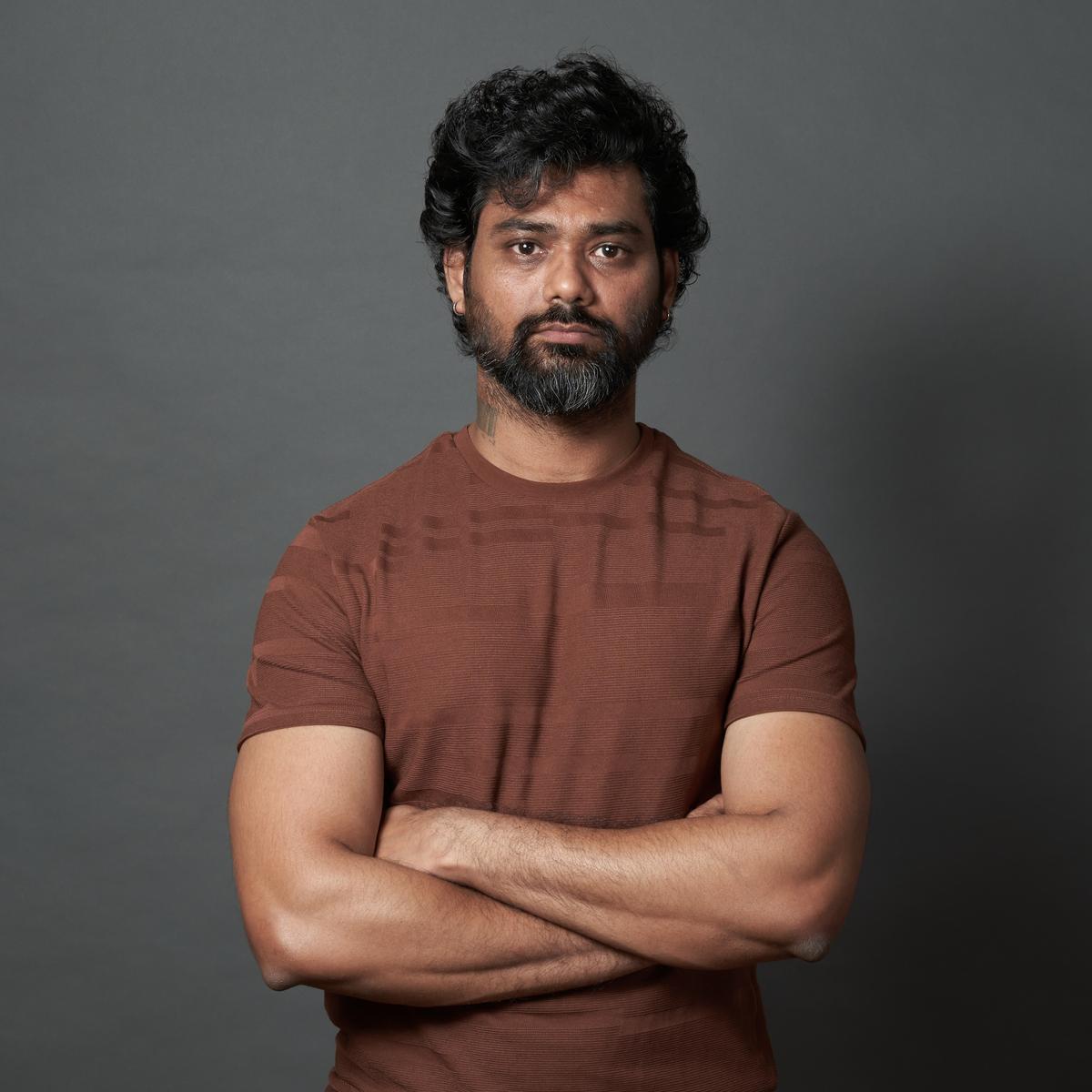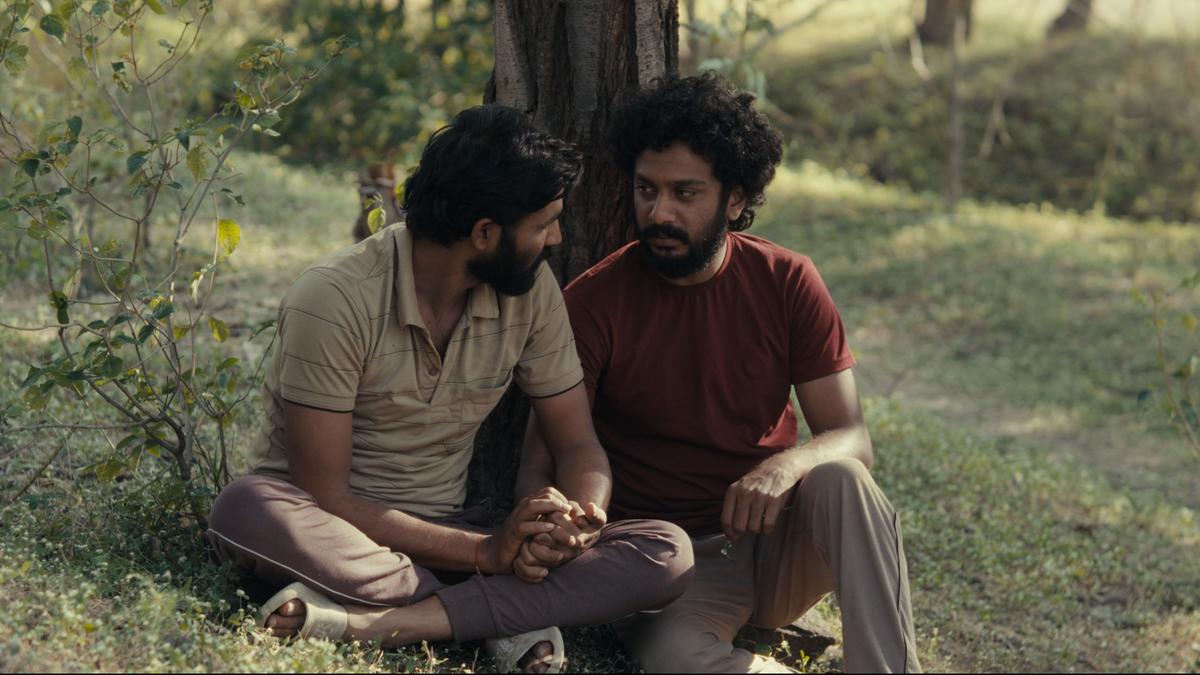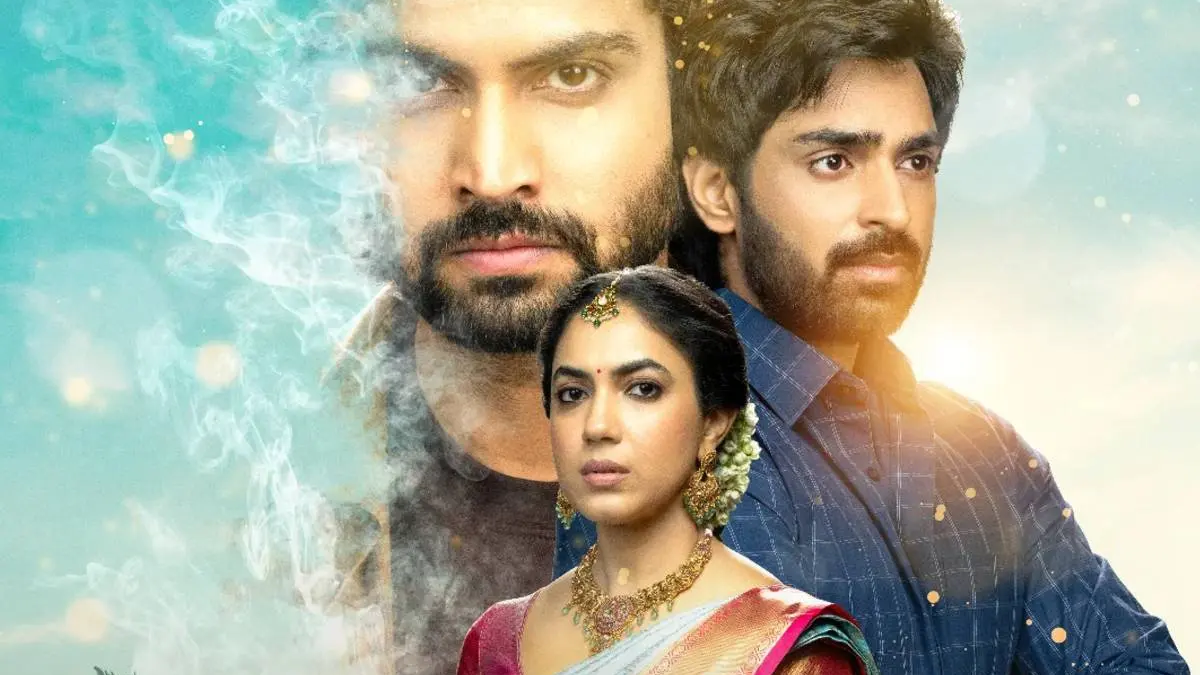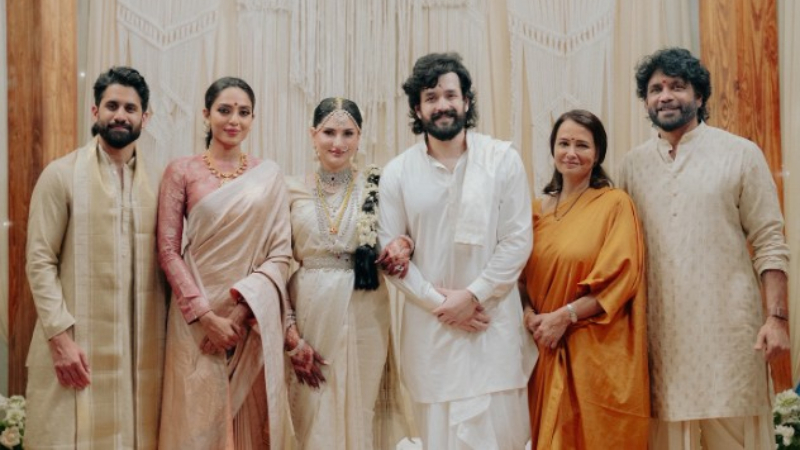
A still from ‘Sabar Bonda’.
| Photo Credit: SPECIAL ARRANGEMENT
Breaking away from the Western notions of queer love stories, Rohan Kanawade finds his gaze in Sabar Bonda (Cactus Pears), the only Indian film at the Sundance Film Festival this year. The festival, held in Utah, runs from January 23 to February 2. Part autobiographical, part fiction, the film traces the tender love story of two young men in a Maharashtrian village. Hailing from a modest background, Anand, a young, educated, city-bred gay man, returns to his ancestral village to mourn the loss of his father and perform certain rituals for the satisfaction of his mother.  During the mourning period, he develops a tender bond with a school friend he had left behind. If grief brings vulnerability, love provides him strength to survive the seemingly homophobic surroundings; much like cactus pears’ gentle and nutritious core despite being found in harsh and arid surroundings.“I wanted to tell a queer story grounded in our society and culture where coming out to parents is not always a sad memory,” says Rohan ahead of the film’s premiere at Sundance, the confluence of the best of Independent cinema.
During the mourning period, he develops a tender bond with a school friend he had left behind. If grief brings vulnerability, love provides him strength to survive the seemingly homophobic surroundings; much like cactus pears’ gentle and nutritious core despite being found in harsh and arid surroundings.“I wanted to tell a queer story grounded in our society and culture where coming out to parents is not always a sad memory,” says Rohan ahead of the film’s premiere at Sundance, the confluence of the best of Independent cinema. 
Director of Sabar Bonda Rohan Parashuram Kanawade
| Photo Credit:
SPECIAL ARRANGEMENT
As a child, Rohan says he fell in love with the film projector and the “light that emerged from the little dark holes”. After dabbling in interior design, he found his true calling in cinema. Though Rohan has more favourite films to recount than favourite filmmakers, he rates Satyajit Ray as an inspiration for the way the master portrayed some of his rural stories. Then there is Turkish filmmaker Nuri Bilge Ceylan who, like Rohan, used his parents and cousins to tell his stories in his initial forays. He finds Celyan’s Once Upon a Time in Anatolia and Clouds of May close to his sensibility and gushes about Michael Haneke’s Funny Games and Amour. “Filmmakers like him create experiences. I also wanted to create an experience for the audience. He pushed me to explore different ways to tell a story.”ALSO READ:‘Whiplash’, ‘Reservoir Dogs’ ace Sundance Film Festival’s list of top 10 filmsSabar Bonda is inspired by Rohan’s experience in his ancestral village near Shirdi in 2016. Born and brought up in Mumbai, he says, it was his first visit to the village in 10 years. “When I last went there, I was in the 10th standard and even then, there was talk of getting me married. I didn’t want to get into that conversation. So, I stopped going there. When my father passed away, I had no escape because my mother wanted to meet relatives and conduct rituals. I knew that once I go there the topic of marriage will come up again because all my cousins had got married and some of them even had children.”Instead of thinking about his loss, Rohan says he was concerned about what questions would be put to him. “At that time, I started thinking what if I had a friend over here who knew about me? Instead of grieving my loss, I would have sneaked out with him and stayed away from this pressure. That thought stayed with me,” reflects Rohan. Over a period of time, he reimagined that whole experience and made it a journey for the central protagonist.The son of a driver, Rohan says he did not face any struggle in coming out and has used his experience in shaping the story of Anand and his friend, Balya. “My father didn’t complete his schooling and my mother is uneducated but they immediately accepted my sexuality when I shared it with them. There was no drama. Wisdom doesn’t come with education. My father said he would not like to destroy the life of any girl by pushing me into marriage. I could see the love my parents had for me was greater than any social pressure. We do see the struggle of people in coming out, but that’s not the only truth.”Parental support, he adds, is also the reason that Anand yearns for home because he sees it as a safe space. However, he does not come out to his relatives because that might ruin his mother’s relationship with them.On Balya hailing from a different social and academic strata, Rohan says, that during his stay, he discovered that farmers in the region stay single for a long period because most women seek city-based prospects. While reimagining the relationship, he wondered what would happen if someone used the situation to stay unmarried.The screening at Sundance means a lot to Rohan because he says he always wanted his films to be showcased at the big international film festivals. His earlier efforts were thwarted because of the lack of interest of producers. He states, “I was told the Marathi audience was not ready for this experience. I wrote the film for my happiness and the response has come as a validation. I hope Sundance selection encourages Marathi producers to be brave and back more independent films.” Published – January 23, 2025 12:57 pm IST







Leave a Reply